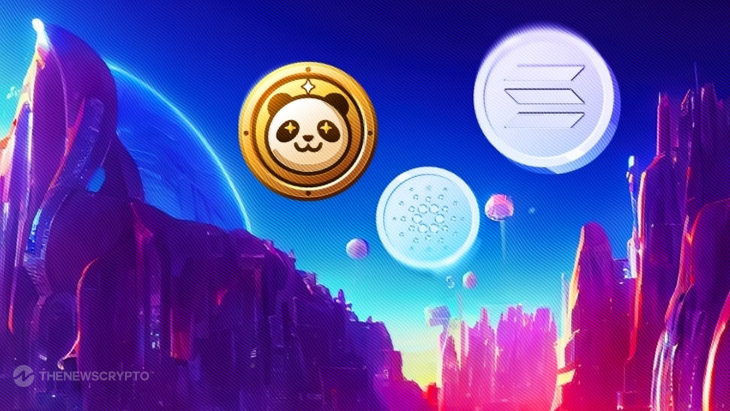The cryptocurrency market is always in flux, presenting fresh challengers to traditional powerhouses. Among layer-1 blockchains, Cardano (ADA) and Solana (SOL) have been at the forefront. Yet, an emerging contender, Pandoshi (PAMBO), is showing considerable promise to outshine these established networks.
Pandoshi’s Unique Value Proposition
Pandoshi was created to embody the core decentralization principles underpinning blockchain technology. Its elaborate ecosystem incorporates various decentralized finance (DeFi) components, like a non-custodial Pandoshi Wallet, decentralized exchange, prepaid crypto cards, educational platforms, and metaverse gaming.
These features are unified under PAMBO, Pandoshi’s native token, which was initially built on Ethereum but will transition to Pandoshi’s proprietary layer-2 blockchain, PandaChain. Adhering to a proof-of-stake model, PandaChain focuses on sustainability while enhancing scalability and transaction speeds.
Notably, Pandoshi facilitates complete user privacy through anonymity features and no mandatory KYC protocols when accessing ecosystem products like PandoshiSwap exchange or Cardoshi prepaid cards.
PAMBO also has a deflationary tokenomics structure with a buy-back-and-burn mechanism applying fees from ecosystem activities to decreasing token circulation. With only 50% of the total PAMBO supply allocated for the ongoing presale, early adopters can capitalize on significant value accretion as scarcity intensifies.
Key Pandoshi Products
Pandoshi has some key products in development that could drive its success:
- Panda Chain: A Layer 2 blockchain solution that will reduce fees and increase transaction speed. It will be the backbone of the Pandoshi ecosystem.
- Pandoshi Wallet: A non-custodial crypto wallet that gives users control over their funds. The Pandoshi Wallet has already been launched in beta testing for Android users.
- PandoshiSwap: A decentralized crypto exchange featuring PAMBO trading pairs and a buy and burn mechanism to make PAMBO deflationary.
- Cardoshi: Crypto debit cards that allow spending PAMBO and other cryptos anywhere without KYC requirements.
Cardano Fails to Innovate
In contrast, while Cardano enjoys a first-mover advantage after its 2017 launch, critics argue it lacks innovation to retain its market share. Even after upgrades, Cardano still grapples with network congestion and lagging transaction speeds compared to rivals.
Additionally, Cardano’s deliberately gradual development roadmap focuses more on peer-reviewed improvements than building a rich decentralized application ecosystem. This causes many developers to migrate towards more versatile platforms like Pandoshi.
Although Cardano retains strong brand awareness, particularly in emerging economies, it risks losing relevance if it keeps getting outperformed on technical capabilities.
Solana Suffers Repeated Outages
Alternatively, Solana identifies scalability as its primary advantage, touting an industry-leading 50,000 transactions per second. Solana’s low costs also allow unique microtransaction use cases.
However, critics highlight Solana’s susceptibility to service disruptions, with the network crashing intermittently, sometimes for hours. These Solana (SOL) outages erode user trust and demonstrate the difficulties in balancing decentralization with raw speed.
Conclusion
In an environment where network reliability and real-world functionality are paramount, Pandoshi’s commitment to privacy, modular future-proof design, and emphasis on user autonomy offer a strong investment thesis.
With the presale nearing a conclusion ahead of PAMBO’s official launch, Pandoshi presents a compelling opportunity, especially when contrasted with Cardano and Solana’s lingering issues. Pandoshi’s ecosystem development and deflationary tokenomics could spur tremendous growth in the coming years if it delivers on its ambitious roadmap.
Click Here To Take Part In Pandoshi Presale
Visit the links below for more information about Pandoshi (PAMBO):
Website: https://pandoshi.com/
Whitepaper: https://docs.pandoshi.com/








